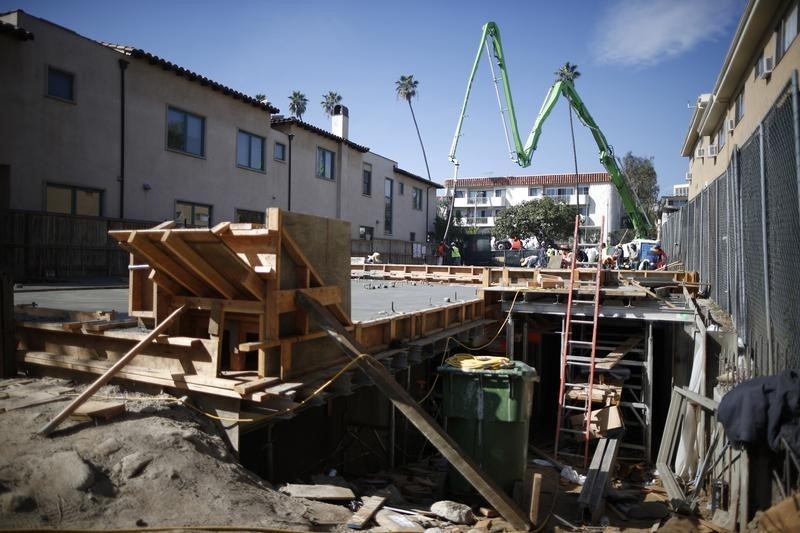By Lucia Mutikani
WASHINGTON (Reuters) - U.S. housing starts rose solidly in September on soaring demand for rental apartments, a sign that the housing market continues to steadily improve even as economic growth has slowed.
The Commerce Department said on Tuesday groundbreaking increased 6.5 percent to a seasonally adjusted annual pace of 1.21 million units. It was the sixth straight month that starts were above 1 million units, pointing to a sustainable housing recovery.
Economists polled by Reuters had forecast groundbreaking on new homes rising to a 1.15 million-unit pace last month.
Housing is one of the few bright spots in the economy, which has been slammed by softening global demand and a strong dollar, which have undercut exports. Efforts by businesses to reduce an inventory bulge and weak capital spending in the energy sector have also been a drag.
Economic activity has braked sharply, with third-quarter growth estimates running below a 1.5 percent annualized rate. The economy grew at a 3.9 percent rate in the second quarter.
Although residential construction accounts for less than 3 percent of gross domestic product, housing has a broader impact on the economy, with rising home prices boosting household wealth and therefore supporting consumer spending.
The dollar slipped against the euro, while prices for U.S. Treasury debt were little changed.
Starts for multi-family projects surged 18.3 percent to a 466,000 unit pace, the highest level since June. Multi-family construction is being driven by demand for rentals, especially by millennials, who cannot afford to buy their own homes because of higher prices and debt burdens.
Groundbreaking for single-family homes, the largest segment of the market, rose 0.3 percent to a 740,000 unit pace. Economists say single-family building is being constrained by land and labor shortages.
Starts in the South, where most of the home construction takes place, rose 0.6 percent to their highest level since October 2007. Groundbreaking on housing projects in the West was the highest since July 2007.
Though building permits fell 5.0 percent to a 1.10 million-unit rate last month, a six-month low, the weakness is likely to be temporary amid strong confidence levels among homebuilders.
A survey on Monday showed builders' confidence rose to a near 10-year high in October, with builders upbeat about current sales conditions and expectations over the next six months.
Single-family building permits slipped 0.3 percent last month. Multi-family building permits dropped 12.1 percent, with permits for buildings with five units or more falling to their lowest level since December 2014.

Permits for single-family homes in the South rose to their highest level since January 2008.